It Goes Fast - 3 Ways to Cultivate Mindfulness in the Midst of a Busy Year
We climbed to the top of the dune after a late afternoon on the beach. We stopped to catch our breath and turned to overlook the ocean with our son."First time?" a woman sitting in a beach chair asked, looking up at us."For this little guy, yes," I replied. "It's my favorite beach from childhood," I continued."Me, too," she said, pointing down at a large family setting up for a sunset picnic at the water's edge. "I've been coming here for 50 years. I've brought my children. And now my children's children." She lifted her cane slightly. "I can't make it down anymore because of my knee, but it makes me so happy to watch them from up here."We watched her family far below us for a moment, running and splashing and eating and building sandcastles. We watched 50 years of history in that moment. She looked at us warmly and said, "Remember to enjoy it. It goes fast." This is the one thing every single parent has shared with me - it goes fast. Parents of toddlers, teens, grown children. All have said the same thing. Now, it's debatable if we could possibly enjoy every minute. (Picture me about a week in to our new normal of "sleeping.")But, all in all, yes. Enjoy it. It goes fast.And it's easy to enjoy every minute when it's easy or fun or exciting. It's harder to enjoy every minute when it's hard or mundane or gross or exhausting.I am staying home with our son part time this year. In the beginning, it was easy to giggle as I picked his food off the floor or to find peace in the daily scrubbing of the egg pan. But now, six weeks in, there's been a lot of egg pans. And a lot of food on the floor. The glimmer of the beginning of this year at home is dulling a bit, and I'm finding it harder to enjoy the tough stuff.As we settle into the school year, a level of comfort and ease sets in. Parts of personalities come out that were once held back. Things that, at first, seemed cute are now beginning to lightly (or not so lightly) grate on nerves. Some rhythms of the school day might feel less like an enjoyed ritual and more like a redundant routine. In short - there are a lot of egg pans.And yet, it is certain - May will come before we know it and we'll find ourselves thinking,"Where did the school year go? It was just November." The school year moves fast. Childhood moves fast. Life can move fast. There are ways to remember it. Ways to slow down. Ways to enjoy even the tough stuff.Gratitude. There are many studies that connect gratitude to one's well being. Giving thanks helps us feel better. Now, giving thanks is really easy to do when things are going great - an unforeseen check from the insurance company, a clean bill of health, the birth of a child. It gets harder when things are tough. It's harder to have gratitude when the proverbial you-know-what has hit the fan - a bad evaluation, a tough first period class, a lack of funds for books or materials.Tara Brach, author, psychologist, and meditation teacher, recommends a practice of saying yes. Instead of fighting the thing that's hard or sad, she works at acceptance. When the funds don't come in; yes, this. When the homework doesn't drift in; yes, this. Rather than an overly sunny, forced optimism, saying yes to the tough stuff is an acknowledgement that this is - no mater what we want - what is happening.
This is the one thing every single parent has shared with me - it goes fast. Parents of toddlers, teens, grown children. All have said the same thing. Now, it's debatable if we could possibly enjoy every minute. (Picture me about a week in to our new normal of "sleeping.")But, all in all, yes. Enjoy it. It goes fast.And it's easy to enjoy every minute when it's easy or fun or exciting. It's harder to enjoy every minute when it's hard or mundane or gross or exhausting.I am staying home with our son part time this year. In the beginning, it was easy to giggle as I picked his food off the floor or to find peace in the daily scrubbing of the egg pan. But now, six weeks in, there's been a lot of egg pans. And a lot of food on the floor. The glimmer of the beginning of this year at home is dulling a bit, and I'm finding it harder to enjoy the tough stuff.As we settle into the school year, a level of comfort and ease sets in. Parts of personalities come out that were once held back. Things that, at first, seemed cute are now beginning to lightly (or not so lightly) grate on nerves. Some rhythms of the school day might feel less like an enjoyed ritual and more like a redundant routine. In short - there are a lot of egg pans.And yet, it is certain - May will come before we know it and we'll find ourselves thinking,"Where did the school year go? It was just November." The school year moves fast. Childhood moves fast. Life can move fast. There are ways to remember it. Ways to slow down. Ways to enjoy even the tough stuff.Gratitude. There are many studies that connect gratitude to one's well being. Giving thanks helps us feel better. Now, giving thanks is really easy to do when things are going great - an unforeseen check from the insurance company, a clean bill of health, the birth of a child. It gets harder when things are tough. It's harder to have gratitude when the proverbial you-know-what has hit the fan - a bad evaluation, a tough first period class, a lack of funds for books or materials.Tara Brach, author, psychologist, and meditation teacher, recommends a practice of saying yes. Instead of fighting the thing that's hard or sad, she works at acceptance. When the funds don't come in; yes, this. When the homework doesn't drift in; yes, this. Rather than an overly sunny, forced optimism, saying yes to the tough stuff is an acknowledgement that this is - no mater what we want - what is happening.
Saying Yes does not mean approving of angry thoughts or sinking into any of our feelings...however, we can still say Yes to the experience of fear, anger or hurt that is arising inside us. Yes is an inner practice of acceptance in which we willingly allow our thoughts and feelings to naturally arise and pass away.
Saying yes creates a space for gratitude to live in the toughest of times. Yes, this. Yes, this.Around this time last year, we wrote a post, The Grateful Teacher. In it, we talked about how gratitude can be an action. It's something we do, not something that happens to us. By taking grateful actions, then, we become grateful people. During a time of a lot of egg pans, find an action, large or small, to do for another or even yourself. Actions create momentum. Momentum creates a shift. A shift can create space for gratitude.Dedication. I remember walking to work when I was 8 months pregnant with my friend and colleague, Colleen Cruz. My ankles were swollen, morning sickness was still full tilt, and I was miserable. Colleen shared something that flipped my entire perspective on pain and discomfort.When she's uncomfortable or hurting or upset, she often dedicates her experience to someone who is hurting more.
When my knees ache climbing to the top of an old Brooklyn school building, I think about the those who might hike miles a day for fresh water. I dedicate my discomfort to those facing a greater challenge.
We can't erase hardship. We all have troubles we face during a school year. A way to enjoy the moment even in the midst of trouble to to heed Colleen's advise: If a certain class is unruly, dedicate their unruliness to those who aren't able to receive a formal education. If an observation goes less than smoothly, dedicate it to those unable to find work or a profession they love.Perspective. Sometimes we can't change the tough stuff. But we can bend our perspective. A few ninja mind moves can help see the tough stuff with a new perspective.Ninja mind move #1 - Someone really smart once said The only constant in life is change. When things get tough in the year, and they do, remember that it will change. It may take some time - and the trouble can drag on for a looooooooong time - but the only thing constant in life is change. In other famous words from someone really smart: This too shall pass. Ninja mind move #2 - When things are tough, look small. Really small. Study the pens moving (or not moving) during writing time, notice a kid pick out a book, watch a kid joking with another kid in the hallway. Narrowing your perspective to something much smaller than the actual problem at hand can help shift perspective enough to have some relief.Ninja mind move #3 - Play a game I learned from the wise Brooke Geller, It could be worse. When you find yourself in a tough situation - your flight home is cancelled, there a budget cuts, you forgot your computer the day of leading the faculty meeting - play a game of Doomsday thinking of how it could be worse. You can always find the silver lining in imagining an even worse situation than you're in at the moment.As I find myself at the end of this post, I'm left thinking about the importance of mindfulness. It is easy to be mindful when things are lovely. It's harder to stay mindful when things are tough. And there is a whole lot of tough in parenting and teaching.But at the end of my career, when my child is grown, I want to sit high up on that dune, looking down at my life, knowing that I worked to enjoy it, even when it's tough. Because it goes fast.There are some incredibly helpful organizations and resources for cultivating a culture of mindfulness in schools. Here are a few favorites.
- Mindful Schools - a not-for-profit training organization with online and in-person courses, content, and a network of mindful educators spanning all 50 U.S. states and 100+ countries.
- The Association for Mindfulness in Education is a collaborative association of organizations and individuals working together to provide support for mindfulness training as a component of K-12 education.
- Mindful Practices brings a student-centered and culturally relevant approach to wellness education. The organization features educators, social workers, dancers and administrators who display versatility in their approach to engaging teachers, students and communities from all walks of life.
- Just Breathe: A Documentary on Kids and Mindfulness
Please add your own favorites in the comments!Kate & MaggieBig Idea: Teacher & Student Wellbeing Tiny Detail: Ways to Cultivate Mindfulness Throughout the School Year

